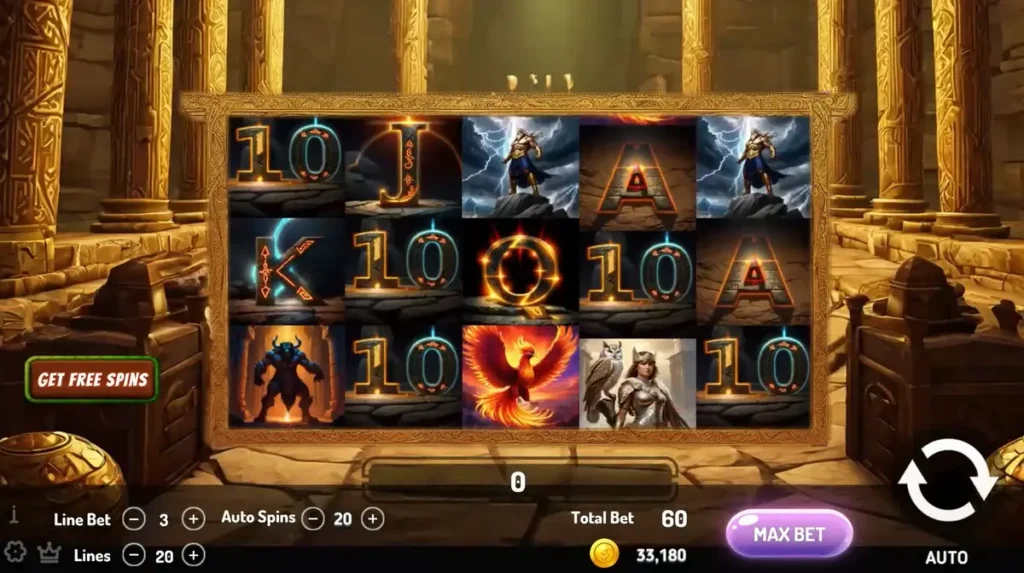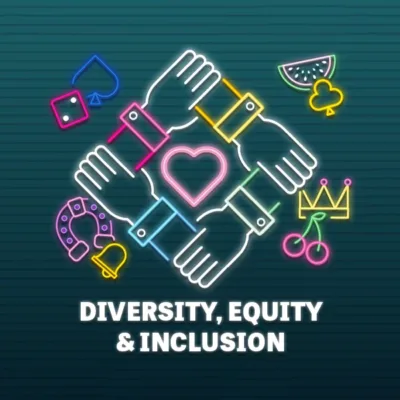The problem that game developers are constantly coming up against is the fact that all players are individuals and have different preferences. What will work for one person will be an absolute dealbreaker for another. However, there are some key aspects that make for a successful game franchise no matter who the target audience is.
Charlie Jacka, Head of Product at Blueprint Gaming puts it succinctly: “Well-developed characters are critical to the narrative slot studios should be aiming to create, as they hold significant potential to foster strong ties with players, leading to a more immersive experience.”
Players are drawn to characters more than they are to symbols, and they want someone to identify with while playing. Captivating characters can guide players on a journey, which ultimately makes for a more exciting and memorable experience, and helps a game stand out.
With studios increasingly using AI to create characters for their slots, there is worry that we may be losing an essential element of humanity in these games that players are able to connect with.
“Nowadays, when a very significant percentage of slots are created with the help of AI, strong characters still need the real touch of a game artist,” argues Chief Product and Business Development Officer at BetGames, Ian Catchick.
It’s true that AI is becoming more prevalent in every stage of game design. Designers are using AI software such as Future Anthem and GammaStack to analyse player behaviour in real time, with the aim to adapt existing slots and create more personalised games to target specific demographics.
AI can optimise the math models used to ensure game fairness, running billions of tests in a matter of minutes to predict a wide range of player behaviour. Developers were attempting all of these things before but now they can be automated and done much, much faster.
The use of AI can be enticing when you look at the possibility of much larger amounts of data and quicker turnaround times, but cutting corners comes with its own set of issues. AI at this level is still relatively new and has exploded exponentially in a relatively short period of time. We’re yet to fully understand its potential or its limitations so it’s crucial to maintain human checks to make sure we aren’t compromising player experience or safety in pursuit of innovation.
It’s one thing to involve AI in the mechanics and background aspects of slots, but when it comes to building the story around the game to attract new players, the risk may be much higher than the potential reward.
Many of today’s most successful slot franchises are built around recognisable characters. Take a look at Play’n GO’s Rich Wilde and the Book of Dead, or Kong, “the unofficial mascot of Blueprint Gaming” according to Jacka. When you’re faced with a wall of slots, an interesting character can make a game stand out and pull you in. As Anna Bashmakova, Playson’s Steam Lead, explains, “a character can become the main driver of differentiation. He sets the tone, creates a mood and tells a story that you want to continue exploring.”
A well-developed character not only helps create the perfect vibe, they can also impact gameplay, making the slot stand out even more with original mechanics.
“When you build a strong character-based game, you also create more exciting, high-impact areas for players to enjoy,” Catchick asserts.
All elements of a successful game should feed into and inform each other for a truly seamless and enjoyable playing experience.

In an attempt to simplify this process, games development company XGENIA has recently launched the “first-ever prompt driven, AI-generated slots platform.” Using the platform operators can create “unique, exclusive-use slot games in under 20 minutes.” It’s easy to see why, in theory, this sounds appealing to developers wanting to reduce costs while putting out more games at a faster pace, but in practice is it really making games that are going to attract and retain players in the same way?
We took a look at their demo video showing the whole process including the final result, a vaguely Greek mythology-themed slot called Mythos Quest, and we have to say it was missing that vital spark that reels you in. The speed at which the game was put together was undeniably impressive, with all the different mechanics and aesthetics taken into account and the game’s symbols appearing one after another fully formed and cohesive. But they lost me when the actual game started spinning.
There was nothing particularly memorable or exciting about the gameplay itself, no dazzling special features or exceptional animations. On top of this, when discussing the concept for the game the AI mixed its mythologies, referencing Zeus and Athena alongside Thor and Anubis. These details are the kinds of things that players will notice and potentially be turned off by. XGENIA claims that their platform will “disrupt the iGaming industry”, and we don’t disagree, but we are not sure that it will necessarily be for the better.
By definition, generative AI is incapable of true originality – it’s fed by what’s already available out there and frankensteins it all together to fulfill the prompt. Without the input of real artists to come up with new ideas, the characters that come out of the machine will just be more of the same concepts that players are tiring of. This is the risk developers run by turning to AI generated games or “game skeletons” for players to customise the skin of; an oversaturation of indistinguishable and simplistic slots that just don’t stand out against the competition.
This is why we, at JohnSlots, hope that, going forward, studios will maintain that crucial human touch when it comes to designing their slots. It would be a shame to see the market flooded with a deluge of lookalike games with no memorable titles or franchises for players to get excited about.



